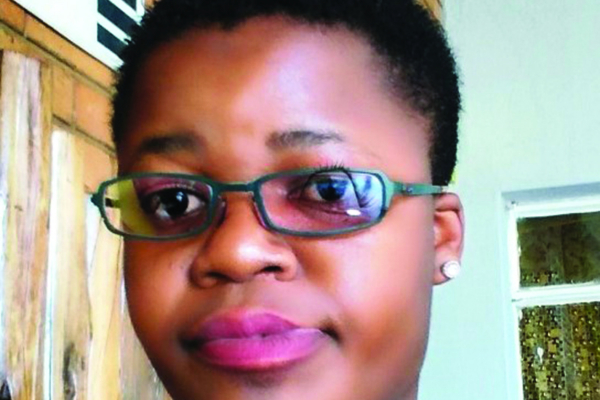
UNITED Kingdom-based visual artist, Tamsanqa Nkiwane (27) was in the country over the last two months, during which he had time to explore Bulawayo’s arts scene. Nkiwane, who recently completed his Master of Arts degree in Painting at Royal College of Art in London, is constantly searching for new expressions in his work.
By Sharon Sibindi
After losing his parents at a tender age, Nkiwane, who also holds a Bachelor of Arts degree in Fine Art, was adopted together with his brother. He recently held his Eitha Unguswi Zim/City Exhibition at the National Gallery in Bulawayo. NewsDay Life & Style reporter, Sharon Sibindi (ND) caught up with Nkiwane (TN), who spoke about his experiences in the arts industry and his interests in the Zimbabwean topography. Below are excerpts from the interview.
ND: Where do you draw your inspiration from?
TN: I draw my inspiration from my identity. Most of my works have to do with myself, trying to understand my heritage and where I come from and where I am going. So that involves Zimbabwe, to learn more about my culture and my family. So I do a lot of work from that.
ND: Since you are based in the UK, how do you find the arts standards in Zimbabwe?
TN: It is interesting. There is a lot more of paintings in Zimbabwe. I see fantastic sculpture pieces in the gallery, which shows that artists are doing fantastic work, which I find inspiring.
ND: Looking at the productions in Zimbabwe, do they match the international standards from your assessment?
- Chamisa under fire over US$120K donation
- Mavhunga puts DeMbare into Chibuku quarterfinals
- Pension funds bet on Cabora Bassa oilfields
- Councils defy govt fire tender directive
Keep Reading
TN: There is a bit of time elapse between them because London is very contemporary and it is quite fast. In Bulawayo, for instance, the works are a bit more traditional while in the UK people do performance, installations and sound.
ND: What’s your take on the appreciation of visual arts in Zimbabwe?
TN: I think it is low among my generation and even lower in the younger generation. I feel a lot of young people need more opportunities and we need more such places, so they can utilise their skills. I think there’s energy bubbling in many artists.
ND: What do you think these artists should do to market their works?
TN: To market their works, well, I think Zimbabwe is a very interesting place. You have got a lot of things to do from a lot of references of history. I think if you open independent galleries, artists can become more active in the communities and doing more shows that it is a way to draw attention to Zimbabwe.
ND: Visual art is usually regarded as elitist. What’s your take on that?
TN: Yes, I think it can be elitist because I think a lot of intellectual side of things kind of scare people off. I think art should be everyone’s and I think when it becomes bigger and commercial, very commercial, it may be a problem. I think when it’s kind of middle level, it’s a bit more honest.
ND: Do you live off your art or you have other supplementary projects?
TN: I do other supplementary things. I do music as well. Most people in London have to work part time because London is very expensive. Not many people have a space that they can at least go to everyday.
ND: We have seen in some cases the love for art running in a family. Is that true in your case?
TN: Not really, but my mother is an artist, too, and everyone else is academic.
ND: At what stage in your life did you develop interests in arts?
TN: I have always loved arts because I loved cartoons. I loved watching Disney or Poker Man, all of those things, and tried to copy. So I remember me and my mother, we used to draw each other and make up stories.
ND: Who has been your greatest inspiration?
TN: I got my inspiration from David Harness—an American artist and musician. I think music influences me a lot.
ND: What do you think government should do to help develop the sector?
TN: The government needs to give more funding to arts. I think there’s a massive interest in the academics and less in the arts. It’s good to have culture in a city because it brings in tourism and culture is a massive power in most countries. China is building culture at the moment because it knows it needs it. So they now put lots of money into the arts.
ND: Bulawayo has been traditionally regarded as the hub of arts and culture. Do you believe this is still true?
TN: I have noticed there’s a lot of music but I have not seen much of art here. I have seen the gallery here.
ND: Your parting shot?
TN: I think everything has been moving in an interesting way. I had a great stay here, very different from London. I have learnt a lot of new things and shared space with very interesting people. I have seen a lot of new faces. I had a great experience and I will be coming back more often.











